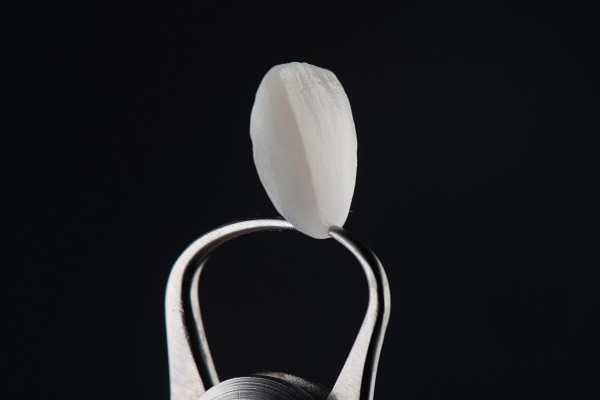



People looking to get dental veneers often wonder if they will experience pain during the process. To save those from this concern, it can be helpful to get a full understanding of what happens during the procedure. Continue reading to learn more about dental veneers and what to expect when visiting the dental office.
Important facts about dental veneers
The teeth play a major role in a person’s appearance and confidence level. If the teeth appear white, straight and well-shaped, the smile will look dazzling and flawless. A good smile is a big confidence booster.
Unfortunately, not everyone has sparking, well-aligned, beautifully shaped teeth. However, there is an effective solution to this issue, and that is what dental veneers provide. Dental veneers are a form of cosmetic treatment that is made for people who wish to enhance and improve the appearance of their teeth. By bonding a thin porcelain layer over the front side of the teeth, any flaw that affects appearance is quickly covered, including cracks, stains, chips or minor misalignments.
Preparing for the veneer process
Before dental veneers are placed, the dental professional will need to prepare the teeth. The first step is to shape the teeth to prevent the veneers from making the teeth look bulky. The dentist will remove a thin layer of the tooth's enamel. After the preparation, patients will get temporary veneers to protect their teeth while the permanent veneers are being made and to allow them to get accustomed to the new smile.
When the dental veneers are ready, patients will return for another appointment. This is when the veneers will be affixed to the tooth, hiding all the imperfections and improving the smile’s appearance.
What about the pain?
The truth is that patients do not experience any serious pain from getting dental veneers. In fact, many people leave the dental office surprised at how easy the procedure is. The discomfort should occur during the process of filing down the enamel. Even though only a thin layer of the teeth is removed, some people may experience sensitivity, so the dentist will usually use local anesthesia to numb the area and minimize any pain when preparing the teeth.
After the numbness wears off, any additional discomfort can be managed with over-the-counter pain relievers. After the temporary veneers are removed, the modified tooth enamel will be exposed to the air briefly, so the area will be numbed to prevent any pain when attaching permanent veneers. After cementing the dental veneers, there may be a short period when the teeth feel sore or sensitive, which is common with major dental procedures.
In conclusion
Dental veneers are not painful. The enamel removal process is just to ensure that the results look natural and appealing. Please note that patients should meet with the dentist for a consultation to learn more about the procedure and if it can provide the results that are desired. Dental veneers can last several years before they need to be replaced, but that depends on the level of oral care.
Request an appointment here: https://www.foothillfamilydentists.com or call Foothill Family Dentistry at (949) 506-2115 for an appointment in our Foothill Ranch office.
Check out what others are saying about our dental services on Yelp: Dental Veneers in Foothill Ranch, CA.
Recent Posts
Dental veneers cover flaws and correct imperfections on the teeth to enhance their appearance for a long-lasting smile. With proper maintenance routines, dental veneers can last for up to 20 years. However, incidents like oral health issues and trauma can damage veneers and necessitate replacement. The dentist can repair or replace dental veneers, depending on…
Dental veneers are an attractive option for a smile makeover for many patients, able to correct multiple issues with one procedure. Discover how this treatment covers stains, damage, gaps, and other tooth problems.Veneers are thin shells of porcelain that can be bonded to one or more teeth to correct a variety of cosmetic issues. They…
Wondering how to repair a broken tooth? Anytime someone experiences damage to one or more of their teeth, professional dental treatment is often necessary. Saving a broken tooth is possible and is preferred over losing it.Understanding how someone can experience a broken tooth is necessary, as this information will help prevent it from reoccurring. Additionally,…
A chipped tooth counts as a dental emergency when the damage is extensive enough to leave the tooth's pulp chamber compromised. Such injuries often come with inflammation, bleeding, tenderness and excruciating toothaches.The pulp chamber houses a tooth's blood vessels and nerves, so damage to it leaves these soft tissues vulnerable to infection. Irritants in the…


